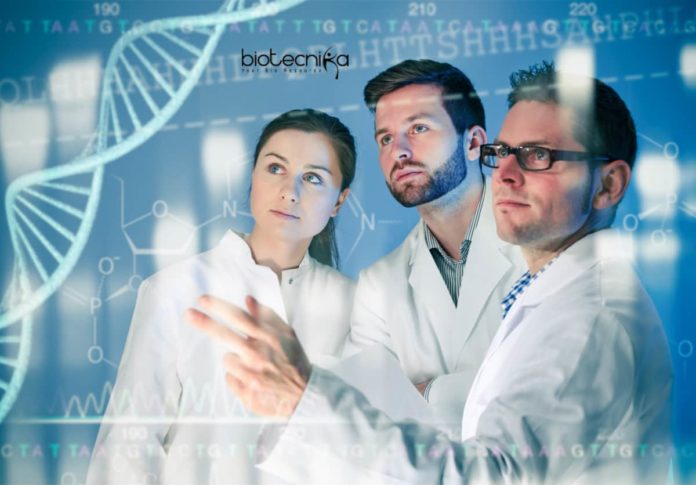DBT & NBM-BIRAC Joint Call for India-U.S. Collaborative Research Grant
India-U.S. Collaborative Research Grants on Vaccine Adjuvant Development, DBT& NBM-BIRAC JOINT CALL has been announced. Interested and eligible applicants can check out all of the details on the same below:
This call closes:
Request for Applications (RFA)
India-U.S. Collaborative Research Grants on Vaccine Adjuvant Development
DBT& NBM-BIRAC JOINT CALL
Vaccine research and development is a priority area in the Department of Biotechnology
(DBT) supported through an important mission called the National Biopharma Mission
(NBM). NBM is an Industry-Academia Collaborative Mission of Department of
Biotechnology for Accelerating Early Development for Biopharmaceuticals; being
implemented by Biotechnology Industry Research Assistance Council (BIRAC), a Public
Sector Undertaking of DBT aiming to create an ecosystem for innovative indigenous product development by researchers, startups and SMEs (Small and Medium Enterprises) to make Indian biotech industry globally competitive. Considering vaccine adjuvant research as an important area for vaccine development Department of Biotechnology in collaboration with National Institute of Allergy and Infectious Diseases (NIAID)- National Institutes of Health (NIH) invites proposals for the discovery, development, and/or preclinical testing of vaccine adjuvants under the aegis
The NIAID at the United States NIH support discovery and development of vaccine
adjuvants, as described in the recently issued NIAID Strategic Plan for Research on Vaccine
Adjuvants. Programme accomplishments include the screening of more than 2 million
compounds and the development of more than 100 different adjuvants/formulations,
encompassing eight different adjuvant types or classes. NIAID also supports: the
development of novel high- throughput screening approaches to evaluate adjuvant candidates; comprehensive formulations expertise to maximise adjuvanticity while minimising reactogenicity; and technology development for in vitro assessment of adjuvants to aid the evaluation and down-selection for human studies, including at-risk populations. Collaborations between Indian and U.S. investigators would further accelerate adjuvant and vaccine research in both countries.
Department of Biotechnology invites proposals for the discovery, development, and/or
preclinical testing of vaccine adjuvant research to be supported under the National Biopharma Mission being implemented by BIRAC. The aim of this call is to strengthen vaccine adjuvant research in India. This joint DBT & NBM-BIRAC call will leverage the funding expertise of both the organizations.
This programme will support collaborations, both between academic institutions as well as
between academia and industry partners. The aim is to build capacity for discovering and
developing new adjuvants that can improve vaccine efficacy and also enhance career
development.
Research Objectives:
The intent of this programme is to foster collaborations between Indian and U.S. investigators to accelerate vaccine adjuvant research. Activities associated with adjuvant discovery include: the screening of compound libraries, in vitro or in silico, to identify molecules capable of stimulating (human) cellular receptors or pathways that result in enhanced innate/adaptive immune responses; identification of molecular or cellular mechanisms-of-action of novel adjuvants; optimisation of novel adjuvants through structure-activity relationship (SAR) studies, involving medicinal chemistry approaches; and preclinical testing of novel adjuvants in animal models with pathogen-derived antigens or licensed vaccines to determine the safety, immunogenicity and efficacy of the novel combination. The goal of adjuvant development is to advance novel vaccine-adjuvant combinations towards licensure for clinical use. Adjuvant development activities include: characterisation of immune profiles and potential immunotoxicity induced by vaccines formulated with novel adjuvants; improvement of an adjuvant’s in vivo efficacy and reduction of reactogenicity through formulation or modification of delivery routes; toxicology, stability testing, pharmacokinetics or adsorption, distribution, metabolism and excretion studies to generate data required for initiating clinical testing of novel adjuvanted-vaccines. Adjuvant research also encompasses the development and evaluation of combination adjuvants, such as: the systematic pairing of novel or previously described adjuvants to identify highly synergistic combinations; identification of molecular or cellular mechanisms underlying synergistic adjuvant action in such combinations; or development of approaches to optimise the co-delivery of multiple adjuvants, either through carriers or other formulations, or chemical linkers. This new programme supports a wide variety of adjuvant research activities conducted collaboratively by Indian and U.S. investigators.
Areas of collaborative research may include, but are not limited to:
- Discovery of novel compounds with adjuvant activity;
- Systematic optimisation of lead adjuvant compound(s);
- In vitro or in vivo (animals) evaluation of novel adjuvants (single compounds or
combinations) combined with antigens associated with pathogenic infections,
candidate vaccines, or licensed vaccines; - Mechanism-of-action studies of adjuvants, including identification of molecular
targets, signaling pathways, or immune effector functions (e.g., soluble mediators,
cellular targets); - Formulation/optimisation of novel adjuvanted vaccines, including those for at-risk
populations; and - Systematic side-by-side in vitro and/or in vivo (animal) comparison of adjuvants to
down-select for subsequent product development.
This programme will NOT support:
- Cancer-related adjuvant discovery/development; and
- Clinical trials.
Clinical Trial Definition:
For the purpose of this programme, the NIH definition of a clinical trial will be applied:
A clinical trial is a research study in which one or more human subjects are prospectively
assigned1 to one or more interventions2 (which may include placebo or other control) to
evaluate the effects of those interventions on health-related biomedical or behavioural
outcomes.3
1The term “prospectively assigned” refers to a pre-defined process (e.g., randomisation)
specified in an approved protocol that stipulates the assignment of research subjects
(individually or in clusters) to one or more arms (e.g., intervention, placebo, or other control) of a clinical trial.
2An intervention is defined as a manipulation of the subject or subject’s environment for the purpose of modifying one or more health-related biomedical or behavioural processes and/or endpoints. Examples include: drugs/small molecules/compounds; biologics; devices; procedures (e.g., surgical techniques); delivery systems (e.g., telemedicine, face-to-face interviews); strategies to change health-related behaviour (e.g., diet, cognitive therapy, exercise, development of new habits); treatment strategies; prevention strategies; and, diagnostic strategies.
3Health-related biomedical or behavioural outcome is defined as the pre-specified goal(s) or condition(s) that reflect the effect of one or more interventions on human subjects’ biomedical or behavioural status or quality of life. Examples include: positive or negative changes to physiological or biological parameters (e.g., improvement of lung capacity, gene expression); positive or negative changes to psychological or neurodevelopmental parameters (e.g., mood management intervention for smokers; reading comprehension and /or information retention); positive or negative changes to disease processes; positive or negative changes to health-related behaviours; and, positive or negative changes to the quality of life.
Scope of this Call:
From this Joint Call, the Department seeks new innovative approaches that have the potential to transform the vaccine sector on a national or global scale by identifying and filling gaps in knowledge on the discovery/development of novel adjuvants that enhance vaccine performance without interfering in its activity. This Joint Call is aimed to support
collaborative proposals that combine complementary and synergistic research strengths in any of the aforementioned areas. This call invites consortia-based concept proposals from academia (with/without industry) with already established/identified leads and explicitly outlined deliverables for further validation.
Eligibility:
Primary Applicant: The primary applicant (Principal Investigator- PI) for this call should
be mandatorily from Indian Academia. Applications can be proposed jointly between:
- Academia with academia
- Academia with industry
All applications of the collaborative projects MUST include at least one investigator from
India (as PI) AND one investigator from the U.S. (as Co-PI) with eligible NIAID support
(e.g. able to receive administrative supplements).
A list of interested, eligible U.S. investigators is provided at the end of this announcement.
Indian investigators who are interested in collaborating with U.S. investigators not listed
below must have the U.S. investigator contact either of the following NIAID program staff to discuss eligibility:
• Wolfgang Leitner, Ph.D; [email protected]; 240-627-3575
• Kentner Singleton, Ph.D; [email protected]; 240-669-5499
Please note that the basic eligibility criteria for Indian academia and industry is as below:
1. Eligible Indian Organizations
a) Central/State Govt. Institutions of Higher Education
b) Private Institutions of Higher Education
c) Research institutes, universities, medical schools, IIT’s and other engineering
institutions, other recognized research laboratories in the public sector and not-forprofit institutions.
d) The institution must be recognized by Department of Scientific & Industrial Research
(DSIR) as a Scientific and Industrial Research Organization (SIRO), if outside public
sector.
2. Required Registrations
Private institutions/Hospitals/NGOs should be registered in Darpan Portal, Niti Aayog
website. (https://ngodarpan.gov.in/)
3. Eligible Indian Investigator(s)
Scientists working in Universities/Academic Institutions/National Laboratories/Industries
(DSIR)-Recognized R&D Centre & Non-Profit Organizations with necessary facilities and
strong scientific background in the proposed area as the Principal Investigator(s) are invited to develop an application for support jointly with academia or Industry.
4. Eligible Industry (Companies)
An Indian company is defined as one which is registered under the Indian Companies Act,
2013, and minimum 51% of shares of the Company should be held by Indian citizens holding Indian passport (Indian Citizens do not include Persons of Indian Origin (PIO) or Overseas Citizen of India (OCI) holders).
Terms of Award:
Human Subjects: Before award, all U.S. studies with human subjects must conform to NIH
policies on the protection of human subjects
(https://grants.nih.gov/grants/policy/hs/index.htm).
Before any funds can be expended for in-country research activities in a foreign country, the grantee institution must show evidence of compliance with both the U.S. and Indian
regulations for the conduct of research involving human subjects. Additional information on
the U.S. requirements can be found at the HHS Office for Human Research Protections at
https://www.hhs.gov/ohrp/. Additional information on Indian requirements can be found in
the Revised ICMR National Ethical Guidelines for biomedical and health research involving
human participants
(https://www.icmr.nic.in/sites/default/files/guidelines/ICMR_Ethical_Guidelines_2017.pdf )
Intellectual Property: The provisions of the Agreement on Science and Technology
Cooperation between the Government of the United States of America and the Government
of the Republic of India (https://www.energy.gov/sites/prod/files/USIndia%20ST%20Agreement.pdf ) will govern the allocation of intellectual property, copyright, and patent rights relevant to awards from this programme.
Data Sharing Policy: In keeping with the NIH Data Sharing Policy
(https://grants.nih.gov/grants/policy/data_sharing/ ), applicants will be required to provide a data sharing plan within one month after the award. Each data set will be determined in
consultation with NIAID staff. The National policy of India relating to data sharing will be
applicable.
Peer Review of Applications:
Review will follow the two-step procedure, with a primary critique focused on scientific
merit and conducted by an ad-hoc panel of extramural experts from the scientific community, including prominent Indian scientists. The final review will be conducted by DBT and NIAID taking note of the comments made by the scientific experts.
The following review criteria will be used, and each application will receive an overall score
based on a 1 (best) – 9 (worst) numerical scoring system:
- Overall Impact: likelihood for the project to exert a sustained and powerful influence
on the research field. - Significance: the importance of the project in terms of advancing concepts or
technologies that drive the field. - Investigators: appropriateness of the proposed investigators for the project, with well-integrated and complementary expertise, and evidence of ongoing records of
accomplishment. - Innovation: the potential to change paradigms in the field.
- Approach: a clear presentation of well-reasoned and appropriate strategies, methods,
and analyses; and potential problems and alternative approaches. - Environment: appropriate institutional support, equipment, and other physical
resources.
Budget Issues:
Appropriate budget based on the objectives proposed in the application will be funded by
DBT/BIRAC for the Indian component. In case of Joint applications specific budgetary
requirement for Academia & Industry component should be indicated for funding support.
The maximum duration of the project will be three years. NIAID funding for the U.S.
component should be commensurate with the level of involvement of the NIAID-supported
investigator(s).
Applicants must provide detailed budgetary requirements separately with justification for the Indian and U.S. components. Each of these justifications also should include separate detailed budgets/justifications for any U.S. or Indian institution serving as a subcontractor or collaborator to the parent U.S. and Indian components, respectively.
The Indian budget component should follow DBT guidance, using the format available at the eProMIS portal of DBT: http://dbtepromis.nic.in/. Please refer to the Section on Budget
Particulars of Proposal Submission form for R&D Projects.
The proposed U.S. and Indian budgets shall include Non-Recurring (for equipment) and
Recurring budgets (for Overhead, Manpower, Consumables and Contingency) for a period of
three years.
Mode of Submission:
Proposals may be submitted in the prescribed format, clearly stating “Request for
Application: ‘India-U.S. Collaborative Research Grants on Vaccine Adjuvant Development’
through online DBT eProMIS portal: https://www.dbtepromis.nic.in/ under the area Vaccine Research and Diagnostics, as per DBT format. Subsequently, two hard copies should also be sent to: Dr. Jyoti M Logani, Scientist ‘E’, Department of Biotechnology, Room No.516, 5th floor, CGO Complex, Lodhi Road, New Delhi – 110003. Also, PDF document should be mailed to [email protected].
The application must contain the following information:
1-Biographical Information for proposed Project Leader and any other key personnel;
including:
- Name, degree, and current position title;
- Education/training and field(s) of study;
- Relevant research experience; and
- Current research support including the % effort already committed for currently
funded projects.
2-Description of proposed work to include:
- Rationale: how the project will advance vaccine adjuvant development; include
discussion of complementary expertise and/or resources brought by each Project
Leader and other collaborators, as well as feasibility of completing the work within
the timeline; - Each Project Leader’s prior work in the field of adjuvant R&D, etc.;
- Background information;
- Preliminary data;
- Justification for collaborative work with US side and clear work plan and role of the
Indian and US team respectively. - Resources available to complete the work, including sources of human samples, and
any samples to be obtained from an independent clinical study (if obtaining samples
or other resources from an independent source, include a letter from the director of the
independent study confirming the availability of the samples or resources); - Research strategy: a detailed description of the proposed work that includes the
central hypothesis(es) or research question(s), specific aims, experimental approaches
and sample size calculations offering adequate statistical power; Inclusion of work
plan indicating work to be done in India and U.S. respectively to address the
objectives proposed. The applications must clearly indicate justification of the need of
collaboration with the US investigator; - Description of the statistical, bioinformatics, and/or systems biology methods to be
employed for analysis of results; and - Description and justification on the exchange of samples within the scope of the
project must be clearly indicated.
3-Bibliography: limited to essential references.
4-Protection of Human Subjects: Provide a detailed description of the procedures to be used with human subjects, the measures that will be employed to protect human subjects, and the total numbers of each definable population included in the study (3 pages maximum).
5-Letter(s) of Agreement: from independent sources of human samples or other resources, if applicable.
6-Biohazard descriptions: if applicable.
7-Data Sharing Statement
8-Appendix: only 2 documents are allowed (e.g., in-press manuscript).
Timeline:
- Call for Proposals opens: 7th August, 2019
- Call for Proposals closes: 7th October, 2019
- Announcement: 7th December, 2019 (tentative) Inquiries
Direct inquiries regarding scientific, review, or budgetary matters to:
For India-based investigators:
Dr. Jyoti Logani
Department of Biotechnology (DBT),
Ministry of Science and Technology,
Government of India,
New Delhi – 110003.
Phone: 011-24362329
Email: [email protected]
Dr. Kavita Singh
Biotechnology Industry Research Assistance Council (BIRAC)
1st Floor ,MTNL Building
9 , CGO Complex, Lodhi Road,
New Delhi-110003
Phone: 011-24389600
Email: [email protected]
For U.S-based investigators:
Dr. Wolfgang Leitner
Division of Allergy, Immunology and Transplantation (DAIT),
National Institute of Allergy and Infectious Diseases (NIAID),
U.S. National Institutes of Health (NIH),
Bethesda, MD 20892.
Phone: 240-627-3575
Email: [email protected]
Dr. Kentner Singleton
Division of Allergy, Immunology and Transplantation (DAIT),
National Institute of Allergy and Infectious Diseases (NIAID),
U.S. National Institutes of Health (NIH),
Bethesda, MD 20892.
Phone: 240-669-5499
Email: [email protected]
View Notification Below
Editor’s Note: DBT & NBM-BIRAC Joint Call for India-U.S. Collaborative Research Grant, DBT & NBM-BIRAC Joint Call 2019, Request for Applications (RFA), Vaccine Adjuvant Development, make sure you are subscribed to the Biotecnika Times Newsletter, and the Podcast that we have for free listen on SoundCloud.









































